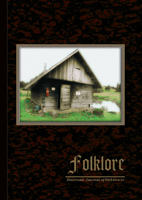Reproducing Identity through Remembering: Cultural Texts on the Late Soviet Period
Reproducing Identity through Remembering: Cultural Texts on the Late Soviet Period
Author(s): Kirsti Jõesalu, Raili NuginSubject(s): Customs / Folklore
Published by: Eesti Kirjandusmuuseum
Keywords: late Soviet period; cultural texts; biographical interviews; nostalgia; communicative memory; post-Soviet memory culture
Summary/Abstract: This article explores some of the ways in which memories of the Soviet past shape the identities and creative work of six Estonian intellectuals born in the 1970s. Based on analysis of the four cultural texts they have produced (an exhibition, a feature film, a novel and a documentary) and biographical interviews with them, it is argued that the authors’ birth frame has had an impact on how they interpret the late Soviet period. They share discursive practices about this period: mutual interpretative principles, which validate their common experience in discourses. Their experience of living in the Soviet system is limited to their childhood years only. Sharing a kind of reflexive nostalgia about the era, they depict the late Soviet period somewhat ironically, with a touch of cynicism (in their cultural texts as well as in the interviews). Even though they do not oppose the official public discourse of the rupture of Soviet Estonia, they tend to accentuate and value everyday experience, thus contributing to ‘normalisation’ discourse of the Soviet period in Estonian memory landscapes. Childhood experiences of the late Soviet period constitute an integral part of these intellectuals’ identities. By reproducing their identity in their cultural texts, they have a potential to deepen the memory templates already existing in public memory discourse, and also to contribute to the addition of new discourses and influencing the identity of others in society.
Journal: Folklore: Electronic Journal of Folklore
- Issue Year: 2012
- Issue No: 51
- Page Range: 15-48
- Page Count: 34

